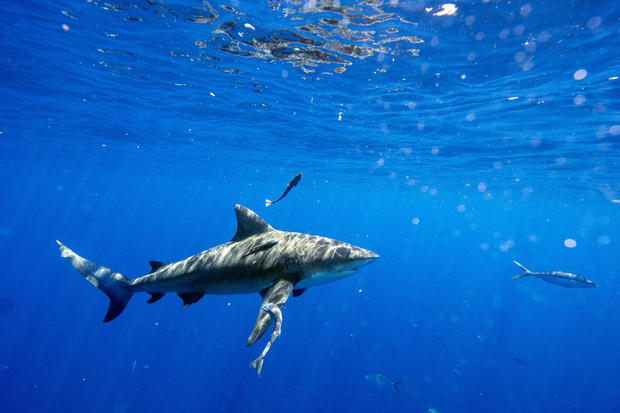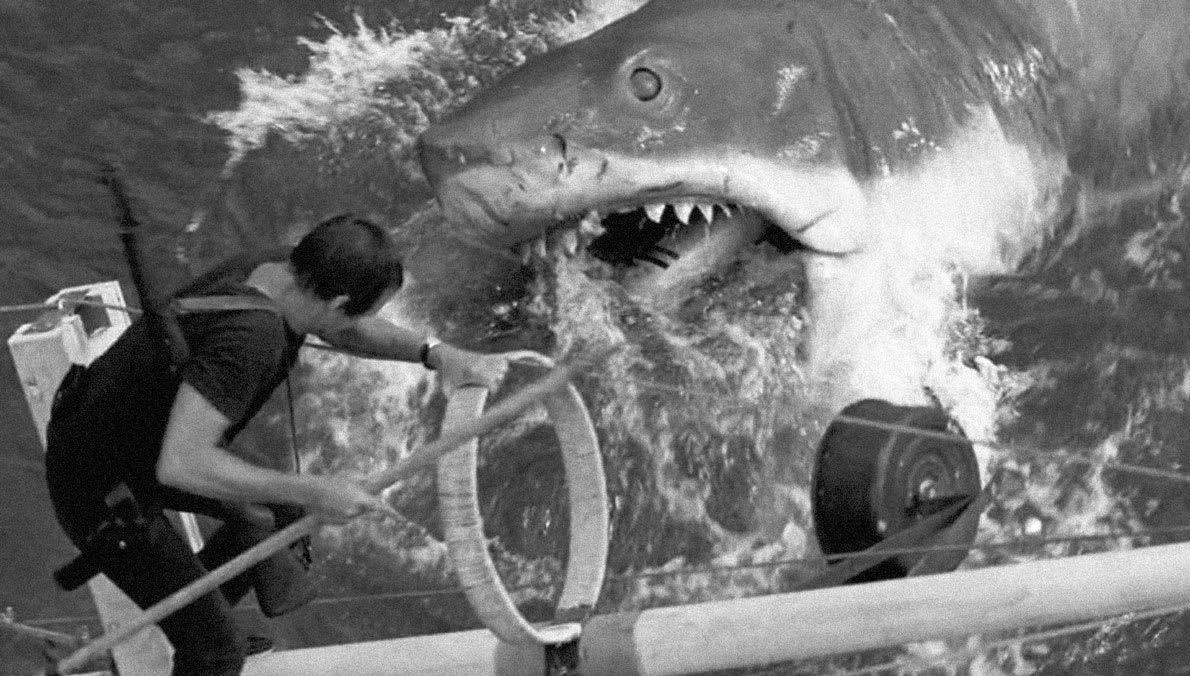What makes people so afraid of sharks? "Jaws," some scientists say
Scientists in California are researching what makes people so scared of sharks. They believe the 1975 movie "Jaws" caused a generation of people to develop galeophobia — an irrational fear of sharks.
Psychologist Gabriella Hancock, who is working with the Shark Lab at Cal State Long Beach, said people aren't born being afraid of sharks.
"We're not innately afraid of sharks," Hancock said. "Five-month-old babies were not afraid of sharks. So it appears as though our fear of them is learned and socially reinforced."
Even CBS News correspondent Carter Evans had his own fright after falling off a paddle board into the waters off a Santa Barbara Beach, where he and researchers spotted a juvenile great white shark.
Scientists said even though the juveniles can be up to 9 feet long and weigh up to 600 pounds, they would rather avoid something as big as a person.
"In fact, if you do make a move toward a shark, they tend to go the other way," said Shark Lab director Chris Lowe.
But despite the evidence, researchers said most people are still terrified. Scientists call it "The Jaws Effect" — a belief that sharks intentionally attack humans.
"What we find is that especially with popular media, it influences people's attitudes and perceptions such that it exaggerates the danger that these animals pose," Hancock said.
Author Peter Benchley, who penned the book that inspired the movie, later said he regretted writing it.
"There is no such thing as a rogue shark which develops a taste for human flesh," he said.
Media coverage of shark attacks can also amplify people's fears, but it turns out images of sharks and people on the beach coexisting appear to have a positive effect.
"There's growing evidence, scientific evidence, that people's attitudes are changing because they're getting good information," Lowe said. "And it's that understanding that takes away some of that fear."
Lowe said shark attacks are "Powerball rare."
"Like, your chances of winning Powerball are better than being bitten by a shark," he said.





